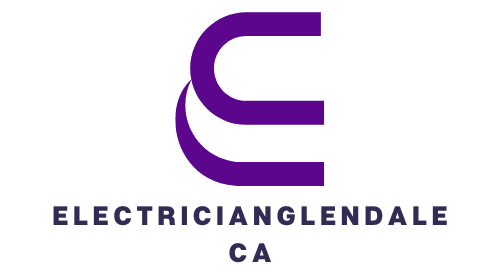What Is the Best Approach for Implementing Video Replay Analysis in Field Hockey Coaching?

Video replay analysis has become a compelling tool for improving team performance in sports. In field hockey, it goes beyond the mere viewing of match replays. It entails a sophisticated use of technology, including software, data analysis and camera tracking systems. This approach provides coaches with a data-driven insight into players’ performance and game strategies. It enables them to assess player skills, devise effective game plans, and deliver better coaching. This article delves into the best methods to implement video replay analysis for field hockey coaching, focusing on capturing and analyzing game data, integrating player tracking and live game analysis.
The Importance of Capturing Video Game Data
Capturing video game data is the bedrock of video replay analysis. That involves recording hockey games using the right camera system and software to gather relevant data. High-definition cameras should be used to ensure clear and high-quality footage. Depending on the budget, multi-angle cameras can be used to capture a comprehensive view of the field.
Sujet a lire : How Can Dance Therapy Be Integrated into Rehabilitation for Sports Injuries?
In addition to the camera system, reliable video capture software is essential. Such software should allow recording, editing, and playback of games. It should also facilitate the tagging of key events and the creation of highlight reels.
Once the right tools are in place, it’s all about capturing the games. That includes home games, away matches and even training sessions. The more games captured, the richer the data set for analysis. While recording, it’s crucial to focus on capturing key game events such as goals, fouls, and player movements.
Avez-vous vu cela : How Can Cross-Training in Martial Arts Benefit American Football Linebackers?
Analyzing Video Game Data
Once the data is captured, the next crucial step is analyzing the video game data. The primary objective here is to transform the raw video data into actionable insights that can be used to improve team performance.
There are several ways to analyze video game data. First, coaches can manually review the footage, taking note of key events, player performance, and game tactics. They can also use video analysis software to automate some aspects of the analysis. The software can help identify patterns, measure player speed and distance run, and generate reports.
Another approach to analyzing video game data is through data visualization. That involves creating graphical representations of the data to better understand patterns and trends. For instance, heatmaps can be used to show player movements on the field, while pie charts can illustrate goal scoring opportunities.
Implementing Player Tracking
Player tracking is a critical component of video replay analysis in field hockey. It involves using technologies such as GPS, accelerometers, and camera tracking systems to monitor the movements of players during a game.
The principal aim of player tracking is to measure player performance in real-time. It can provide insights into a player’s speed, acceleration, distance covered, and work rate. Such data can be invaluable for assessing player fitness, formulating game strategies, and making substitution decisions.
There are various player tracking systems available today, each with its unique features and benefits. When implementing player tracking, it’s important to choose a system that fits your team’s needs and budget. The system should also be easy to use, reliable, and able to provide accurate and timely data.
Incorporating Live Game Analysis
Live game analysis is another vital aspect of video replay analysis. It involves analyzing the game in real-time, usually from the sidelines. That can provide coaches with immediate insights into the game, enabling them to make tactical decisions on the fly.
Live game analysis requires specialized software that can process and analyze video data in real-time. The software should have features such as live tagging, instant replay, and real-time data visualization.
In addition to software, a dedicated analyst is often needed to oversee the live game analysis. The analyst should have a deep understanding of the game and be able to interpret the data quickly and accurately. They should also be able to communicate their findings to the coaches effectively.
In conclusion, implementing video replay analysis in field hockey coaching requires a combination of the right tools, techniques, and personnel. It involves capturing and analyzing video game data, implementing player tracking, and incorporating live game analysis. When done correctly, it can provide coaches with a wealth of information to enhance team performance and deliver better coaching. While it may require a significant investment of time and resources, the benefits of video replay analysis make it a worthwhile endeavor for any field hockey team.
Utilizing Analysis Software for Video Replay
The role of analysis software in video replay cannot be overstated. With advancements in technology, we now have software dedicated to facilitating the process of video analysis in field hockey. The analysis software interprets the raw video data and converts it into meaningful information that can enhance team performance.
Firstly, the analysis software can automatically track players’ movements on the field. Automatic tracking technology, coupled with GPS, can provide in-depth insights into the patterns and tactics of players. It can be instrumental in player development as it provides specific data points such as the distance covered, speed, and intensity of movements.
Secondly, the software can tag video footage of significant events in a game. This feature enables coaches and analysts to isolate particular moments like goals, fouls, or specific tactics for focused review. The tagged clips can be compiled together to form a highlight reel, which can be utilized for team meetings or individual player review sessions.
Lastly, analysis software provides a platform for incorporating data-driven decisions into the coaching process. It provides various metrics and statistics that can inform the development of strategies and tactics. The software can help highlight areas of strength and weakness, providing a clear pathway towards improved team performance.
A free trial of the software is often available for teams to assess its suitability. Coaches should ensure the software they select is user-friendly, reliable, and fits within the team’s budget.
Enhancing Field Hockey Coaching with Video Replay Analysis
The implementation of video replay analysis in field hockey coaching has revolutionized the way coaches approach the game. By leveraging high-definition video footage and advanced analysis software, coaches are now able to make data-driven decisions that can significantly enhance team performance.
The process of video replay analysis starts with capturing high-quality video data of games and training sessions. This data is then processed through analysis software that can automatically track player movements, tag significant events, and generate in-depth reports. The software can also provide real-time analysis, allowing coaches to make tactical adjustments during a game.
Moreover, the video replay system has proven to be a game-changer in player development. Players can review their individual performances and understand their strengths and weaknesses better. By watching their footage, players can see where they need to improve and work on those areas during training sessions.
The integration of video replay analysis into field hockey coaching might require an initial investment in terms of time and resources. However, the benefits it brings in terms of improved team performance and player development make it a worthwhile investment.
In conclusion, the best approach to implementing video replay analysis in field hockey coaching involves capturing high-quality video data, utilizing advanced analysis software, and incorporating data-driven decisions into the coaching process. This approach, when executed effectively, can significantly enhance team performance and contribute to player development. While it may involve a learning curve for coaches and players alike, the potential rewards make it an exciting prospect for the future of field hockey.
